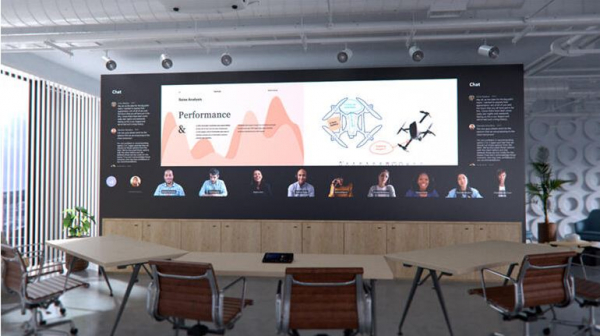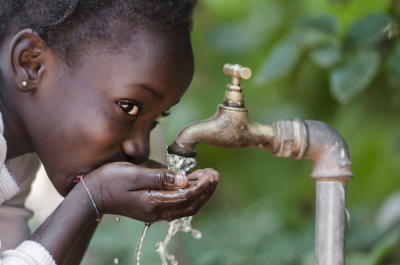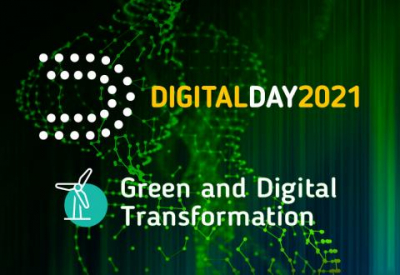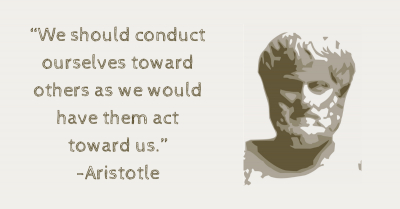Remote work is exhausting
The first annual Microsoft Work Trend Index should be a wake-up call for bosses and software developers alike to improve employee experiences as offices reopen
The majority of people want flexible remote work to continue, but new research from Microsoft warns leaders that they're out of touch with exhausted employees and need to plan if hybrid work is to be successful. Otherwise, they will lose staff -- especially Gen Z workers.
There have been plenty of smaller-scale studies showing how working habits, attitudes to remote work and plans for the future have changed during the pandemic, but the scale of Microsoft's Work Trend Index -- interviews with over 30,000 people across 31 countries, plus analysis of trillions of mails, messages, Teams meetings and other activity across Microsoft 365 and LinkedIn -- lends it more weight.
Indeed, with the data representing "a global and cross-industry view on how work is changing", Microsoft will be using it to guide product development and even reorganise some of its own offices, Kamal Janardhan, general manager of Microsoft 365 Insights told TechRepublic.
Remote trade-offs
Obviously, remote work is a major topic. "The theme of the pandemic is that the entire world participated in this work-from-home experiment, and it became a norm essentially," Janardhan said. "For a lot of people it used to be 'can we even do that as an organisation?' and now it's the norm -- of course we can."
Although it varies by country, industry and what job you have, the interest in remote work is strong, despite the drawbacks. Nearly three-quarters (73%) of workers in the survey want the option of flexible remote work to continue, and 46% plan to move because of that flexibility.
"The flexibility and agility is something that people appreciate, and it's here to stay," Janardhan maintains. "This is going to be the new way of working [that] is actually going to [bring] better culture, more inclusion. The human need to accommodate each other is something that creates connection, and all of us should think about how we accommodate each other in this new way of working."
The good news is that 40% of workers feel they can finally bring their full selves -- complete with pets, family members and the worries they might share, along with a few tears -- to work without embarrassment, the way employees have been promising they could all along. People who have those closer interactions report higher productivity as well as better wellbeing and stronger work relationships.
That's much harder for Black and Latino workers in the US, Microsoft notes in the report: these groups find it slightly harder to build relationships with their team, feel less included and are less likely to feel they can be themselves.
But with lines between work and home blurring, we've lost what Janardhan calls "cognitive white space" -- travelling to work or dropping children off at school might mean traffic jams, but it also provides a transition that the 'virtual commute' in Teams might not fully replicate.
Teams meetings last longer -- 45 minutes rather than 35 the year before -- and people are in more meetings, (with almost two-thirds of those not being scheduled in advance), adding up to 2.5x more time in meetings. They also send 45% more chat messages and do 42% more chats out of business hours. Despite all the pressures of the past year and the fact that remote work should allow for asynchronous work styles, people aren't stepping away from work: just like the year before, 50% of people respond within five minutes in a Teams chat.
It's not just Teams: 66% more people are creating documents that would presumably have been conversations before, and just among Exchange Online commercial and education customers, 40.6 billion more email messages were sent in February 2021 than in February 2020.
Trying to make up for not being in the same room as people by spending so much of the time in Teams interactions may be why 54% of people feel overworked and 39% are downright exhausted. Despite options like Together mode, the combination of the urgent feeling of virtual meetings and the lack of social cues and body language creates 'digital static' that makes it harder to communicate and understand what other people mean. That leads to fatigue, anxiety and even less of a feeling of connection.
We're spending more time with those we work closely with, but much less time with the broader network of people. Messages in Teams channels that the whole group can see are down 5%, while private and small group chats are up 87%. Some of that back channel is positive -- attempts to replicate those physical interactions, Janardhan suggests. "Previously it was rude to chat while you were in the meeting, and now it's the norm, because this is how people exchange things that were previously available only through body language. I would lean over to the person next to me and say 'really?' or I would smile. Now we do that in the chat."
Feeling included correlates with feeling productive and collaborating, coming up with new ideas and thinking strategically -- the things that contribute to creativity and innovation, which are under threat. "Innovation is defined by the things that you create together as a community. This risk to innovation is caused by the fact that when we look at how people are interacting with each other, the level, the depth of their conversations, the time they spend, the team bonds and networks are diminishing," Janardhan warns.
Close-knit groups can be supportive, but they can also be silos of groupthink with no new ideas, Microsoft researcher Nancy Baym (who studies social connections) cautions in the report. "Bumping into people in the office and grabbing lunch together may seem unrelated to the success of the organization, but they're actually important moments where people get to know one another and build social capital. They build trust, they discover common interests they didn't know they had, and they spark ideas and conversations."
It's worst for Gen Z: 60% of 18-25s (who may be living alone or lack the space and money to create a good home workspace) say they're surviving rather than thriving, or flat-out struggling. They find it harder to balance work and life, they're more likely to feel exhausted after work, they don't feel engaged because they can't suggest new ideas or even get a chance to talk in meetings and they have fewer opportunities to make up for that and grow their career by networking because they can't connect with people casually at work. "They feel like the outlook is worse than ever on feeling engaged and excited about work, career advancement, being included in conversations and meetings, wellbeing and productivity," Janardhan notes.
Those downsides are why 67% of people want more in-person time with their colleagues as well as working remotely.
Overoptimistic leaders
Even though two-thirds of employers talk about converting offices into hybrid work locations, they seem to be out of touch with how much this matters. Business leaders are mostly male, information workers and either Gen X or millennials and they're thriving (61%, up over 20% from pre-pandemic), reporting better relationships with colleagues and their own bosses and taking all of their vacation days or even a few extras. "However, their employees are actually saying that they're tired -- the time spent in meetings has almost tripled, and it's still increasing."
Women, frontline workers, those with less career progress and especially Gen Z are struggling -- and 37% of all staff say their company is asking too much of them. A fifth say their employer doesn't care about their work-life balance.
"This dissonance between how leaders are seeing what's happening and how individuals and teams are feeling is really key," Janardhan warns.
One problem is that leaders are more isolated than before the pandemic. "What we see with leaders is that they're often focused on talking to that core group a lot. Previously they had all-hands meetings or company parties: the large gathering is exactly what the pandemic took away from us, it's something they no longer have access to so they become more siloed," Janardhan explains.
Companies advertising more roles as remote work (a 5x increase in remote job postings on LinkedIn) aren't always investing in what staff need to make that work: 42% of employees say they're missing some 'office essentials' and one in ten say their internet connection at home isn't good enough for their work. Worldwide, only 46% of staff get even a portion of remote work expenses paid.
Oblivious leaders may get a rude awakening. Remote flexibility and a lack of support may explain why 41% of employees are now planning to leave their current job within a year. "This is a pretty significant trend increase," Janardhan notes. "When you look at Gen Z, the younger population that has been in the workforce for less time, that jumps to 54%. How leaders approach this next phase of work will impact who stays, who goes, and who joins the company, and it will significantly impact the bottom line. How do you manage your overall workforce with this churn and transition happening?"
Although Microsoft has some suggestions about using technology to improve the situation, most of the strategies the report suggests are about improving employee experience by being flexible and supportive -- and setting the right example.
"This is a pivotal moment in history: we're on the cusp of the next workforce disruption. Across the board companies are thinking about how they can reinvent themselves," says Janardhan. "We should resist the urge to see this new way of working, hybrid work, as business-as-usual. It is an opportunity to rethink long-held assumptions, and I'm convinced that if we take the good that's emerging from this time with us, then we're going to reinvent for much better workforce [conditions]."
The cultural norms inside companies about hybrid work need to be matched with new thinking about workspaces, Janardhan says. "If entering a certain physical space or exiting it was how you defined working, that's gone out the window. Organisations have all these cultures about 'when did you badge and when did you badge out, how long did you work?' That will have to evolve for this new type of working that is more individual, more empowered, more trusting, but also needs to have guardrails in place to be effective."
Both expectations and technology will need to change to make hybrid work successful, Janardhan suggests. "If you do back-to-back meetings because you have no need to commute from one place to another, you're going to be exhausted. It was typical, when you walk to a meeting room, to visit the restroom or get a drink of water and have a conversation. If you eliminate that, that's going to be the opposite of productive for every human being for every team. You can't write the best document or the best code if you aren't creating the right cognitive, critical space for deep work and collaboration work."
The new Viva Insights tool can be helpful, Janardhan notes. "We're finding people are eager to set things like 'this is my focus time, this is my deep work time, this is my after-hours time'. That creates the courtesy culture you previously got from in-person interactions. I could see someone was heads-down, working at their desk, and I wouldn't interrupt. Bringing that sort of human sense into Teams standards is a huge part of this."
But combating the exhaustion of remote work doesn't mean lecturing people about taking a break -- it has to come from the top down. "You can't have individuals saying 'we should have protected after-hours time' if you don't have leaders creating the structure by saying 'I will have certain times where I will engage and interact with the team and those will meet the guardrails and the norms of effective work/life scheduling'."
If companies introduce extra wellness days (Microsoft has added five extra days of time off for employees), leaders need to show that it's OK to use them by taking time off and encouraging staff to do the same. They should also encourage people to take time to network and connect, for fun as well as for work, because that's not an unproductive distraction. "Embrace the asynchronous collaboration, create a culture of breaks and interaction space for human interaction versus just transactional," says Janardhan.
"We're human, we will always have to meet -- we will just do it more intentionally on our own terms, with more flexibility," she adds.
Rebuilding the office
The culture change includes rethinking the spaces people work in, because while many employees want both face-to-face time and the opportunity to work remotely at least some of the time, they're not positive about hybrid meetings. "Meetings where everyone's online: everyone rated those as the most inclusive. Meetings where everyone's in person are next, and the meetings with some online and some in person were the least inclusive," Janardhan tells TechRepublic.
"Physical spaces have often been just a holding ground for people to get transactional work done. If you create rich collaboration -- for example extending the whiteboarding capabilities in Teams to a physical space -- you get a very different kind of physical space."
Microsoft already has about 20% of its global employees back in offices and other locations in 21 countries, and plans to slowly reopen its Redmond headquarters to staff from March 29. Last year the company said that in the long run it will be standard for employees whose job doesn't need them to be in a specific location like a data centre or a hardware lab to work remotely up to 50% of the time if they want. That's already common for some groups like Azure DevOps, which has team members in several different countries, but a much bigger shift for teams like Windows, which has traditionally required employees to move to Seattle. For now, though, employees working in and near Redmond will be able to choose if they want to return to the office, carry on working remotely, or combine the two.
Previously, the campus has been at stage three of Microsoft's hybrid workplace classing, with working from home strongly encouraged. On March 29 it shifts to stage four, a soft opening. "Employees are encouraged to work remotely" a letter from executive vice president Kurt DelBene says. They "should not feel they need to return" but can "work where they feel most productive and comfortable". Precautions on campus will include "social distancing of workspaces, face coverings, extensive cleaning procedures, daily health attestations, attendance strategies and more".
In other Microsoft locations at stage four, less than a third of employees are in the office for half of their working week and more than half are only there 25% of the time. If conditions worsen, the dial could shift back to a more restrictive level and Microsoft won't remove those measures until COVID-19 is more like a seasonal flu than a pandemic.
The company is also building prototype hybrid meeting spaces in Redmond and its UK offices, experimenting with multiple screens, cameras and mixed reality scenarios to try and make meetings equally inclusive for remote workers and people in the room. That might look like the spacious offices Microsoft has shown in the Viva launch video, with a curved row of tables and wall-sized screens with a filmstrip view of remote attendees that puts everyone face to face, or something more like Microsoft Mesh mixed reality. Either way, offices and meeting rooms will need to be appealing spaces that are more attractive than staying home.
Software will be an important part of this, because it can help create habits and culture as well as simply enabling report work, and Janardhan is keen to see technology that better supports people. "My hope is that we and absolutely every single software company start thinking about the reinvention of employee experience. This is the rising tide that should raise all ships: we should change the way we think about software and service of that human endeavour."
By Mary Branscombe in CXO (https://www.techrepublic.com/)
Freelance Cities
By 2027, half the U.S. population will be freelance. If cities focus on that, attracting independent workers and startups suddenly seems a lot more important than, say, courting Amazon.
Last year, 238 cities across North America submitted themselves to Amazon as the hopeful site of its next headquarters, spurred by the promise of 50,000 high-paying jobs and $5 billion in investment. In January, the tech giant narrowed that pool down to 20.
Amid some of the weird stunts designed to entice the company–Stonecrest, Georgia offered to change its name to Amazon, Georgia, and Calgary, Alberta tweeted that it would fight a bear for HQ2–the cities that submitted had to do some real soul-searching to decide if they were worthy to appeal to Amazon.
What Amazon wanted from a potential HQ2 host city was the following: a metro-area population of over 1 million people, a stable business environment, proximity to major highways and arterial roads, and access to mass transit and an airport.
The breathless bidding war that is the HQ2 search has masked the fact that these are really not exceptional demands. In fact, most of these criteria are things cities should striving to meet not for the sake of attracting some outside company, but to better support their existing workforce, and draw smaller, more diverse companies and sectors that may not have the flashy appeal of Amazon, but could equal it in impact.
For instance, cities could focus the same energy they expended on their HQ2 bid on supporting a strong freelance workforce and startup community. Across the U.S., there are approximately 53 million freelancers–people who work on a contract basis for multiple entities, rather than being employed by a single company. They make up around 36% of the total workforce, and collectively, they contribute around $1.4 trillion to the U.S. economy. If current trends hold steady, by 2027 the majority of Americans will be freelancers, according to a study commissioned by the freelance marketplace Upwork.
“We ask our network of freelancers what some of the important factors are when they are deciding where to live,” says Upwork CEO Stephane Kasriel. “And the number one is a strong network of business professionals, like lawyers and accountants, that can help them run their own business–freelancers are like startups themselves.” And following close behind, Kasriel says, is a local community of other similar professionals. “The more of a critical mass of freelancers you can get in a place, the more effective they all become,” he adds.
Cities should listen to these needs, and some are doing so already: Last fall, San Francisco debuted a “gig economy starter kit for freelancers” that includes free online classes and guides for contract workers spanning tax help, career planning, and professional networking tips. Also last year, New York City introduced a first-of-its-kind law that offers the 400,000 local freelancers added protections, including mandatory contracts for work totaling over $800 and stricter payment requirements. Under the new law, freelancers are also entitled to legal consultation through the city’s Office of Labor Policy and Standards.
These are great steps forward, but cities could also go further and consider how initiatives like Universal Basic Income may be able to support freelancers and startup entrepreneurs just getting going in their careers, or how they could structure housing programs to ensure rents remain affordable to people who want to live there.
Those ideas could tie neatly into initiatives like those launched in New York City and San Francisco to create a strong policy framework for freelancers. But what independent workers also need is a stable and accessible on-the-ground community. “That’s a reasonably easy thing for cities to do,” Kasriel says. “Whether that’s organizing events or having dedicated coworking spaces with good, free Wi-Fi and access to public transportation, there’s a lot for them to think about.” Via freelancer networking events, cities could connect professionals like lawyers and accountants to contract workers who could use their services, and by creating affordable spaces for freelancers to come together, they should share tips and build out a community that’s often missing for people who work independently.
Brad Martin, a trained architect who works on virtual reality in the design process, currently works as a freelancer in St. Louis. Amazon bypassed that city in January when it narrowed its search to 20 cities, claiming it did not have the type of talent pipeline or workforce base to feed the types of jobs required for big tech companies. That may be true: St. Louis was a predominantly manufacturing town that’s slowly rebuilding its workforce identity. But a large part of its transformation focuses on attracting startups and freelancers. In the past several years, St. Louis has launched a large handful of incubators, including T-Rex, which Martin has worked with, and has developed several startup competitions and venture funds with backing from the state and local enterprises. They’ve also founded Arch Grants, an organization that specifically funds startups that locate their early stages in St. Louis, which in turn have created 1,500 jobs. Martin applied for an Arch grant this year, drawn to the opportunity for mentorship and further investment and contract opportunities from the network.
St. Louis’ patchwork approach of attracting early-stage startups and independent workers, and converting many of its old, empty manufacturing buildings into affordable coworking spaces, is a strategy that’s allowing the city to play host to a diverse business culture, rather than relying on one monolithic business. And it’s still relatively affordable, which makes it an easier city for freelancers and startups to put down roots.
Kansas City, another metro area that didn’t make the Amazon finalist cut, is in a similar situation. Like St. Louis, it’s also doubling down on creating startup accelerators and coworking spaces, but the Amazon bid also woke the city up to its need to provide tech education and internship resources for its students and high school kids. “We want to think about how we can create those career pathways through credentialing and externships and partnerships with businesses in the community to give kids real-world skills,” says Larry Jacob, VP of public affairs at the Kauffman Foundation, a local nonprofit focused on entrepreneurship that helped with Kansas City’s Amazon bid. Going forward, those opportunities will help the city retain tech talent that’s often lost to business hubs like San Francisco and New York by encouraging native Kansas City youth to use the city as a foundation to launch their own enterprises.
It’s very likely that youth going through these types of programs will go on to become freelancers or start their own small enterprises. And that reality comes full circle back to the need for cities to start investing more proactively in support networks for these types of workers now. While undoubtedly, the city that ultimately wins over Amazon in the HQ2 bid will see some economic benefits, those for whom the competition galvanized more creative thinking about how to support a modern workforce will be able to adapt more quickly and interestingly to a swiftly changing economic landscape.
By EILLIE ANZILOTTI, https://www.fastcompany.com/
Fly Green
Rolls-Royce, Tecnam and Widerøe develop electric passenger airplane
One of the world's most iconic engine manufacturers is shifting its gears to electric planes and just landed a major airline partner.
Rolls-Royce and Italian aircraft manufacturer Tecnam are pressing forward with the P-Volt, an all-electric passenger aircraft, and have added Norway's Widerøe as a partner. The goal is beginning passenger flights in 2026. It's among the first milestones for the nascent aircraft program that was first announced in October 2020.
Each member of the aviation trio will offer its unique skill set to get the P-Volt airborne. Rolls-Royce will focus on propulsion and power systems, Tecnam on design, manufacturing, and certification, and Widerøe will ensure it's ready for airline operations.
The exact specifications of the nine-passenger-seat aircraft are still unknown but the project already has somewhat of a head start since Tecnam has already built the aircraft platform on which the P-Volt is based.
The P2012 Traveller is among the manufacturer's latest aircraft and is currently flying passengers in the US and Seychelles. American commuter carrier Cape Air became the first airline to take delivery of the aircraft in 2019, soon followed by Seychelles' Zil Air.
The P-Volt won't be part of the electric vertical takeoff and land, or eVTOL, revolution as the aircraft cannot fly vertically. Rather, the aircraft is built to takeoff and land on the short runways found throughout Norway's challenging topography, making it a short takeoff and land aircraft, also known as a STOL.
"Norway's extensive network of short take-off and landing airports is ideal for zero-emissions technologies," Stein Nilsen, chief executive officer of Widerøe, said in a statement.
Rolls-Royce isn't new to the world of all-electric aviation and is currently working with Vertical Aerospace to create an eVTOL that can fly up to four passengers around 120 miles at speeds greater than 200 miles per hour. That project will arrive sooner with certification expected for the craft in 2024.
Rolls-Royce and Tecnam have already proved they can work together in this realm, having developed a hybrid light aircraft called the Tecnam P2010. The four-seater aircraft is powered with a combined electric Rolls-Royce motor and standard combustion engine.
The electric-powered P-Volt will be cheaper to operate and quieter than its fossil fuel-powered counterparts, Tecnam says, helping airlines keep costs and noise complaints down. Aerodynamic-friendly wing attachments, commonly known as winglets, that increase the aircraft's efficiency can also be seen in rendering for the P-Volt.
Scandinavia has long battled with its need for air connectivity and the emissions that current-generation aircraft generate. "Flight shame," or "flygskam" in Swedish, is, after all, a Scandinavian movement against the emissions caused by aviation and spearheaded by environmentalists like Greta Thunberg.
Most airlines have turned to next-generation aircraft to help reduce emissions in a temporary solution to the long-term problem. SAS Scandinavian Airlines brought on the Airbus A350-900 XWB and A320neo aircraft while Widerøe was the Scandinavian launch operator of the Embraer E190-E2.
Widerøe's larger goal, however, is to reduce emissions to zero within the next decade as part of a greater aviation sustainability initiative within Norway.
"This aircraft shows how quickly new technology can and will be developed, and that we are on track with our ambition of flying with zero emissions around 2025," Nilsen said.
Thomas Pallini, https://www.businessinsider.com/
Providing Clean Water
Clean water, sanitation, and hygiene education are basic necessities for a healthy environment and a productive life.
When people have access to clean water and sanitation, waterborne diseases decrease, children stay healthier and attend school more regularly, and mothers can spend less time carrying water and more time helping their families.
HOW ROTARY MAKES HELP HAPPEN
Through water, sanitation, and hygiene (WASH) programs, Rotary’s people of action mobilize resources, form partnerships, and invest in infrastructure and training that yield long-term change.
Water project unites Lebanon clubs across all divides
A project to provide clean water to all of Lebanon’s schools is uniting leaders from many of the country’s diverse religious, cultural, and political divisions.
In 2011, Rotary members in northern Lebanon decided to install new tanks and water filters in a few nearby schools with the help of a Rotary Foundation grant. The idea caught on and a few other clubs followed suit.
Two years later, District 2452 Governor Jamil Mouawad and other district leaders saw the potential of creating one giant water project that could reach every school and involve all 24 of the country’s Rotary clubs. They formed a committee to handle publicity and gather technical knowledge, while each club was asked to provide volunteers, contribute funds, apply for grants, and secure contributions from outside organizations.
“Every student has the right to drink clean water. It goes without saying that clean drinking water leads to less diseases, healthier students, and consequently, better education,” says Mouawad. “The bigger the challenge, the greater its positive impact on humanity.”
While clean water is the main objective, the leaders also saw the effort as a means of helping heal Lebanon’s long history of sectarian strife. A civil war divided the country from 1975 to 1990, leaving an estimated 120,000 people dead. In recent years, Lebanon’s government is a shifting coalition of religions, political parties, and sects.
Lina Shehayeb, president of the Rotary Club of Aley, is a Druze by faith. Shehayeb says working alongside club members who are Catholic, Maronite, Greek Orthodox, Armenian Orthodox, and Muslim to promote the project has deepened her understanding of those with different religious or political views.
“We are building peace and understanding,” she says. “There has never been anything quite like this in our country.”
Even the distribution of club responsibilities is designed to foster peace. Each club is responsible for a certain number of schools, some in their area but some in a totally separate region. The clubs nominate a project coordinator, find qualified suppliers, arrange for sponsors, and allocate contributions from sponsors, district funds, and global grants to finance the installation of filters in the schools.
“For example a club from Jounieh, a Christian resort town north of Beirut, might be assigned schools in the southern mountains near the Israeli border, an area that is considerably poorer and primarily Shia Muslim,” explains Mouawad. “After all, who — no matter what their political or religious views — could argue with providing clean water for children?”
The effort could not have come at a better time. With the crisis in Syria, Lebanon’s population is ballooning with refugees, including many school-age children. By improving the schools these kids attend, Rotary members are laying the groundwork for future peace in the region.
The committee is working in cooperation with the Ministry of Education, World Vision, UNICEF, and the Red Cross. Red Cross volunteers take water samples in each of the schools a few times a year and send those samples to the Lebanese Agricultural Laboratory Institute for testing.
According to the committee’s technical team, it will cost roughly $2,500 a school to install water tanks, filters, and provide ongoing monitoring. About 200 schools have been covered so far. The goal is to reach all 1,535 schools within three years.
By Arnold R. Grahl (www.rotary.org)
Shaping digital future
EU countries commit to leading the green digital transformation
24 Member States and Norway and Iceland have signed a declaration to accelerate the use of green digital technologies for the benefit of the environment. They will deploy and invest more green digital technologies to achieve climate neutrality and accelerate the green and digital transitions in priority sectors in Europe, for example by using the NextGenerationEU and InvestEU funds.
The signatories of the Declaration on A Green and Digital Transformation of the EU will take action at national level in the following areas:
• Set up a digital twin of the earth to help monitor climate change;
• Make data available in common European data spaces;
• Support the deployment of green digital solutions that accelerate the decarbonisation of energy networks, enable precision farming, decrease pollution, combat the loss of biodiversity and optimise resource efficiency;
• Lead on energy efficient artificial intelligence solutions;
• Help cities become more green and digital;
• Use technologies to make buildings more energy efficient;
• Support smart and sustainable mobility systems;
• Use digital product passports to track and trace products to improve circularity and sustainability;
• Promote eco-designed products and accessible digital public services;
• Contribute to the use of a climate neutral, sustainable and energy efficient European cloud and blockchain infrastructure;
• Propose permits for deployment of networks and data centres that comply with the highest environmental sustainability standards;
• Making green public procurement the default option overall;
• Develop low power hardware technologies;
• Use of EU funding programmes and private equity to support European green tech start-ups and SMEs
The signatories will regularly assess their progress made and feed it into the Commission’s ongoing monitoring activities. They will also contribute to a shared repository of best practices and experiences to implement the Declaration.
Signatory Countries of the Declaration
The following countries signed the Declaration on Digital Day 2021: Austria, Belgium, Cyprus, Czechia, Denmark, Estonia, Finland, France, Germany, Greece, Ireland, Italy, Latvia, Lithuania, Luxembourg, Malta, the Netherlands, Poland, Portugal, Romania, Slovakia, Slovenia, Spain, Sweden, Norway and Iceland.
They also welcomed the Declaration of the newly established European Green Digital Coalition signed by 26 companies today.
Background
Climate change and environmental degradation present an existential threat to Europe and the world. Smart use of clean digital technologies can serve as a key enabler for climate action and environmental sustainability. The digital transition and a smarter and greener use of technologies will help make Europe the first climate-neutral continent by 2050, a key goal of the European Green Deal. Technology can improve energy and resource efficiency, facilitate the circular economy, lead to a better allocation of resources; reduce emissions, pollution, biodiversity loss and environmental degradation. At the same time, the ICT sector must ensure the environmentally sound design and deployment of digital technologies. Today’s Declarations build on the EU Council conclusions of December 2020 on Digitalisation for the benefit of the environment. A European Parliament Pilot project will support the activities of the European Green Digital Coalition later this year and will be financed and managed by the European Commission.
(https://digital-strategy.ec.europa.eu)
Take Time and Think
How to Tell Right From Wrong: 3 Rules For Every Situation
Really you ask? Is it possible to tell right from wrong and to easily figure out how best to treat other people in every situation? Yes it is, and I'm about to show you how.
It turns out that there are 3 important rules we can always use to do right by others: the Silver Rule, the Golden Rule and the Platinum Rule. These 3 rules are applicable regardless of our politics, religion or culture. These moral rules also have broad support across cultures and throughout history. Let's discuss the Silver, Golden, and Platinum Rules, and how they can easily be applied to tell right from wrong when it comes to our choices and actions.
The Silver Rule
The first rule for telling right from wrong in our dealings with other people is the Silver Rule. It is essentially the inverse of the Golden Rule (which I will get to next.) Basically, we shouldn't do to anyone what we wouldn't want done to us.
The Silver Rule dates back to antiquity and variations of it can be found in Hindu, Buddhist, and other religious texts. The Silver Rules also appears in the writings of the Stoic philosopher Epictetus from around 150CE. He writes: “What you shun enduring yourself, attempt not to impose on others.” Thomas Hobbes, writing in the 17th Century, also described the Silver Rule in his book Leviathan: "Do not that to another, which thou wouldst not have done to thy selfe."
To use the Silver Rule, we must consider whether we are doing something that we would not want done to us. For example, if we would not enjoy being harmed or defrauded in some way, we should not do anything that harms or defrauds others. We should not take any actions that we wouldn't like to be on the receiving end of if the roles were reversed. This seems pretty straightforward.
The Silver Rule is important for being able to tell right from wrong, since applying it forces us to consider the potential consequences of our actions from someone else's point of view.
On its own however, the Silver Rule is less powerful than the Golden Rule because it only forces us to consider our actions, but not our inaction, which can also sometimes be potentially harmful. For example, if we fail to protect someone who is being attacked, or we refuse to speak up about something that we feel to be wrong.
The Golden Rule
Many of us are familiar with the Golden Rule that goes something like this: do to others what you would have them do to you. We rightly associate the Golden Rule with Christianity because it is so integral to Jesus' teachings, but some variants of the Golden Rule predate Christianity, and still others are found in diverse cultures and religions:
“We should conduct ourselves toward others as we would have them act toward us.” -- Aristotle, Greece (circa 350 BC)
“No one of you is a believer until he desires for his brother that which he desires for himself.” (Islam)
The Golden Rule boils down to treating other people the way that we would like to be treated. This includes not only refraining from harmful actions as with the Silver Rule, but also helping others who need it (in a situation when we would like to be helped if the roles were reversed). This where the Golden Rule transcends the Silver Rule in terms of applicability. It is simple and powerful.
The Golden Rule is great for telling right from wrong, but a dilemma can present itself if other people do not always want us to treat them the same way as we would like to be treated. If we refine the Golden Rule even further, we get a third and even more powerful moral concept, the Platinum Rule.
The Platinum Rule
The third and last rule for determining right from wrong is the Platinum Rule. To follow it, we must treat others how they would like to be treated. The Platinum Rules does require due diligence on our part. There is some risk of hurting someone when we take action without knowing what a person would want. So, the Platinum Rule requires taking the time stop and think, or to find out more about how a specific person would ideally want to be treated before we act.
Although he does not call it the Platinum Rule, extensive support for this same principle can be found in the book The Zombies: On Morality, by Josh Bachyinski.
The Platinum Rule is about maximizing what is good and ideal for each person. For example, if a vegetarian guest is coming to dinner at our house, we should serve them meatless fare because that is what they would want. If we apply only the Golden Rule to this situation, we might end up serving our vegetarian guest steak because we would want steak served to us. We fail to consider their needs even though our intentions are good.
The Platinum Rule is even more powerful than the Silver and Golden Rules because it forces us to actually find out how someone else wants to be treated in reality, not just based on our assumptions, even if we have the best intentions.
Putting It All Together
Putting the Silver, Golden and Platinum Rules together provides us with an extremely practical moral framework. The next time we are confused about whether we should be doing something to someone, we must ask these 3 questions:
1.) Would I not want this done to me? (Silver Rule)
2.) Would I like to be treated this way? (Golden Rule)
3.) How would this person ideally want to be treated? (Platinum Rule)
By applying the Silver, Golden and Platinum Rules, it should now be easy to figure out if an action is right or wrong in just about every situation we may encounter in everyday life.
From: www.commonsenseethics.com/blog
WATER, our FREEDOM
Dear friends,
like-minded currently or future ones,
International Water Conference (IWC), with exquisite pleasure, announce the Community News page.
We persevered, we evolved, in a manner we deem delightfully capable of enabling us to change the future for the better.
The IWC is stable on a base formed of scientists and experts from various fields, interests and disciplines, striving to point out a wide range of global water-related problems and to offer, hopefully implement, clear solutions.
The IWC IDEA is a Rotarian initiative. Rotary Water and Sanitation committees and workgroups animated and brought together the scientific and professional community. Those fundaments, and active involvement of members of four Rotary Districts, are the core of our focus on the continued and sustainable development, as seen and described by Rotary International, European Union and the United Nations. Besides those, we look with great attention at the documents and advice of the DG EC Joint Research Center in Brussels.
The IWC GOAL is a practical and usable summary of available science and technology to create tools that can point to sustainable solutions to existential water-related problems. Global catastrophic events, the current pandemic and likes, to us are confirmation of the ubiquitous importance of water.
FLOW, like WATER
Times, old and new, teach us to adapt. We adapted, we made sacrifices. State, public and civil institutions, private sector, everyone participating, recognized the possibility to move forward. We launched new projects and new research (to be reported here regularly). This page will develop with us, as we publish our scientific and professional papers, discuss topics in our forums and monitor the implementation of projects. We will show you what we have done, how we created sustainability and what that sustainability means to the future of all.
I am currently writing to you on behalf of 15 scientists, professionals and experts, project team driven by the motivation to contribute new value and to help those in need.
Looking forward to meeting you here soon and regularly!
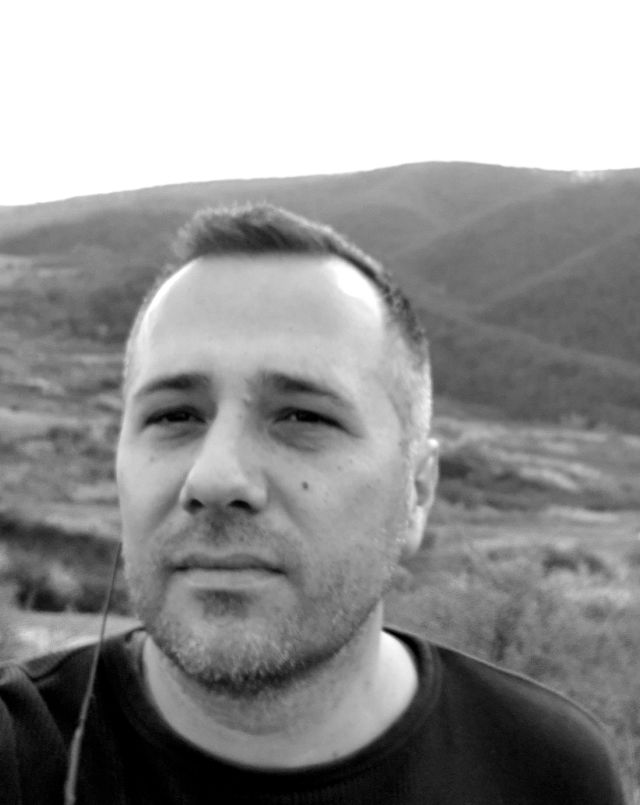
March 2021
Dragan Dabic

